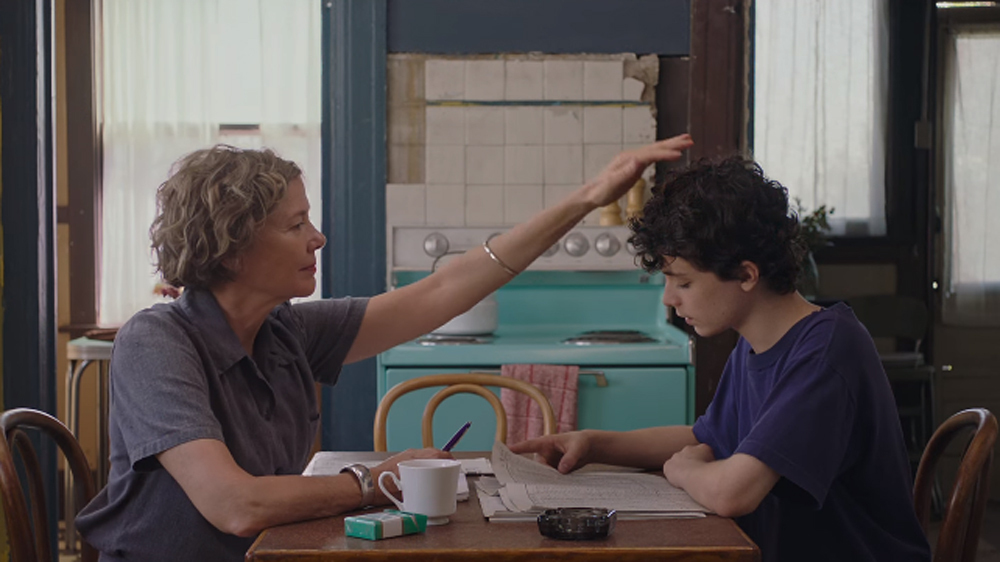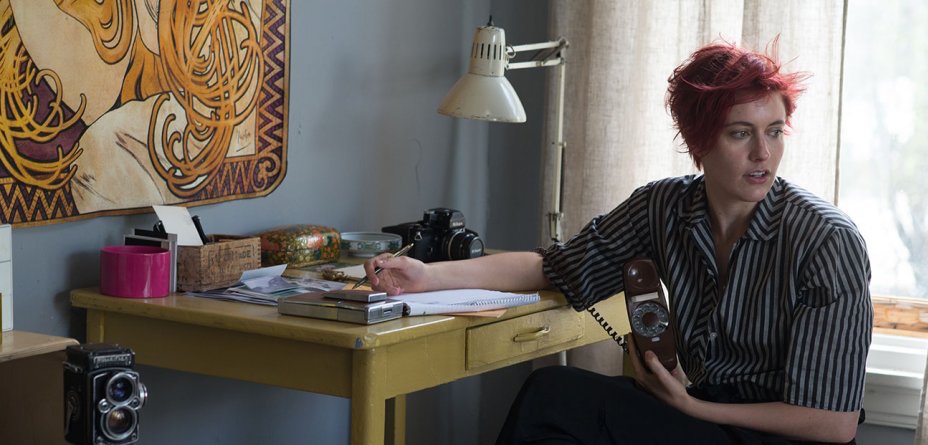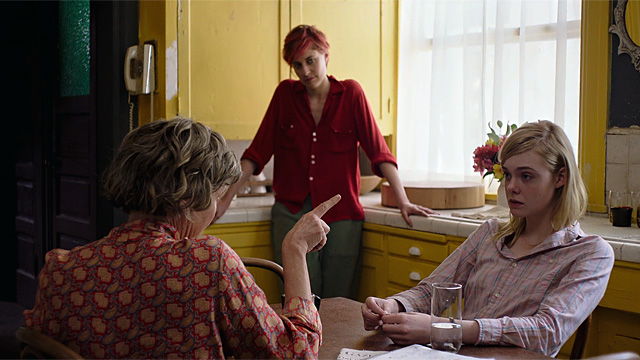
Dorthea (L-Annette Benning) attempts to pass on some maternal wisdom to her son Jamie (Lucas Jade Zumann) in 20th CENTURY WOMEN.
20th Century Women is a narrative of growing—older, wiser, and up. The story focuses on Dorthea (Annette Benning), a single mother living in Santa Barbara, California during 1979. Dorthea raises her son Jamie (Lucas Jade Zumann) in a bed and breakfast style house which is also frequented by Abbie (Greta Gerwig), a budding photographer and feminist, Julie (Elle Fanning) a precocious young adult finding her way through life, and William (Billy Crudup) the maintenance man with ambition to do more with his career. Feeling the burden of raising a young man on her own, Dorthea enlists the help of these residents to help Jamie learn about the world.
As the lives of these residents intersect, they effect Jamie both directly and indirectly. Through this figures, Jamie learns about love, art, rejection, compromise, friendship, and loyalty. The relationships he forms and explorers grow and evolve as he learns to both give and take from the people who care about him. As he navigates through the joys and struggles of adolescence, Dorthea, Julie, Abbie, and William both teach Jamie as well as learn from him.

What works in 20th Century Women are the performances and messages. In particular, Benning shines as the mother who wants to be closer to her son with enough self-awareness to not smother him. She strikes an interesting and careful balance with each of her enlisted helpers in that she wants their assistance, but also doesn’t want to lose the ability to directly connect with Jamie. Benning, along with the rest of the cast, are honest portrayals of individuals, flaws and all, which keeps 20th Century Women engaging and measured between the drama of dealing with tough issues and the levity of enjoying life as it unfolds.
Perhaps most refreshing about 20th Century Women is the way that it depicts the lead female characters. Dorthea, Julie, and Abbie represent three distinct ways in which women lived and viewed the world in 1979. None of the representations are caricatures, but rather thoughtful individuals who are very capable of explaining their philosophies, while at the same time respecting others’ opinions. This makes for some incredibly powerful and sharp dialogue compliments of writer/director Mike Mills.

While 20th Century Women boasts an incredible script and dialogue, some may find the film lacking in narrative arc and resolution. 20th Century Women is not really about these characters—they are not important. What is important are their beliefs, desires, and opinions. As such, those expecting a “typical” ending may be disappointed in where the characters eventually end up and the movie concludes. I can’t stress enough what a minor quibble this is likely to be.
20th Century Women is incredible character pieces that deals with some heavy issues of the time, including what it meant to try to find ones’ way to adulthood (as a team effort) in 1979, regardless of actual years lived. Mike Mills is proving to be an incredibly talented filmmaker and 20th Century Women represents the next high mark of his career.
Photos Courtesy of A24
Grade: A